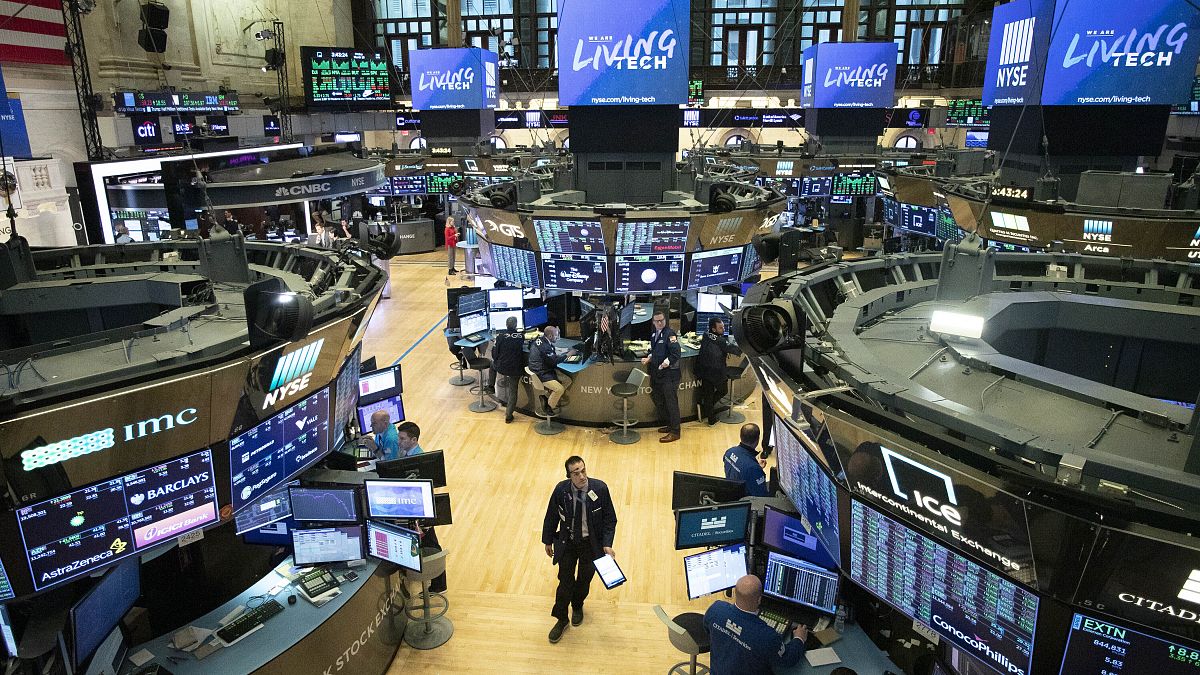Global markets this week have shown a mixed trend as investors delved into a diverse array of macroeconomic developments and company quarterly earnings.
European stocks are poised for a mixed close with the Euro Stoxx 600 and the DAX facing pressure, while the FTSE 100 is higher for the week. Meanwhile, Wall Street has witnessed a volatile week amidst the Federal Reserve meeting and the quarterly results of major tech companies. Asia stands out as the top performer, notably the Chinese stock markets.
Europe
Over a five-day trading period, the FTSE 100 rose by 0.4%, whereas the Euro Stoxx 600 saw a decline of 0.5%, and the DAX slipped by 1.4%
The stock markets in the eurozone experienced pressure attributed to underperformance in several major sectors. Over a five-day trading period, luxury store stocks led to broad losses in the Euro Stoxx 600, with LVMH down by 3.6%, Hermes International slumping by 4.88%, and Christian Dior SE falling by 2.7%. The downward movement in this sector reflects weakened demand in these designer departments due to inflation concerns and a sales slowdown in Asian countries.
Energy shares faced a downturn attributed to a decline in crude oil prices, despite Shell's better-than-anticipated quarterly results. The oil and gas producer exceeded earnings estimates in its first-quarter earnings, reporting adjusted earnings of $7.7 billion, significantly surpassing the estimated $6.5 billion, benefiting from disruptions in the Red Sea and the Russian refinery attack. Shell's shares rose by 2% on Thursday.
Healthcare stocks were mixed. GSK’s shares were up 1.4% after the British drug maker beat earnings expectations in its revenue growth on Thursday, taking its shares up 5.2% weekly. AstraZeneca continued the bullish momentum, up 2.2% over the past trading days. Novo Nordisk’s stocks, however, fell 2.7% after the Danish pharmaceutical giant reported a surge in its profit but provided light guidance. The medical firm faces competition from rivals, typically Eli Lilly, in its key product, the weight loss drugs.
Conversely, the UK stock markets demonstrated a resilient movement, propelled by strong momentum in the banking sector. HSBC, Europe's largest bank, saw its stock surge by 6.4% over the last five trading days following an earnings beat. The bank's revenue reached $20.8 billion, marking a 3% year-on-year increase, and it approved a first interim dividend of 10 cents per share.
In the currency markets, both the Eurodollar and British Pound strengthened against the US dollar for the second straight week following the Fed’s less hawkish-than-expected rhetoric.
Wall Street
The US stock markets rebounded following the Federal Reserve's policy meeting after an initial slump early in the week due to a spike in US government bond yields. Positive quarterly earnings from Amazon and Apple also helped offset the decline. However, Wall Street remains in negative territory on a weekly performance. The Industrial Dow Jones Average is slightly down by 0.04%, the S&P 500 fell by 0.7%, and the Nasdaq slipped by 0.55%.
At the sector level, seven out of eleven sectors in the S&P 500 are currently in negative territory for the week. Notably, utility stocks have led gains, rising by 1.6%. This sector's outperformance signals a significant shift amid Wall Street's rotation cycle, driven by increased demand for electricity due to the AI infrastructure boom. Additionally, the consumer discretionary sector has seen a 1% increase over the past five trading days, buoyed by rallies in Tesla and Amazon.
Amazon's shares surged by 6% following strong earnings, showcasing accelerated growth in its cloud business amid AI advancements. Meanwhile, Apple has beaten market expectations in both earnings per share and revenue, particularly driven by remarkable growth in its Services sales. Apple's announcement of a record-breaking $110 billion share buyback plan has further fuelled the stock rally.
A slew of economic data showed that the US economy might be softening its growth as its ISM Manufacturing PMI contracted in April, while the JOLTS Job Openings fell to the lowest since March 2021. The Fed indicated that a rate hike is unlikely this year at the monetary policy meeting, though it sustained a “higher-for-longer” rate stance.
Asian markets
Chinese stock markets continued to outperform their global peers, with the Hang Seng index up 4.4%, and the China A50 rising 0.47% this week. With a much more accommodative monetary policy and relatively stable currency exchange rate, investors seem to pile into the Chinese markets as a haven destination during such a volatile period. The financial and technology sectors were particularly strong, which makes the upcoming earnings reports from Alibaba and Baidu critical for the regional market trajectory.
Furthermore, the Australian and Japanese stock markets have seen modest gains for the week, with the ASX 200 rising by 0.76% and the Nikkei 225 climbing by 0.73% leading up to the close on Friday.



